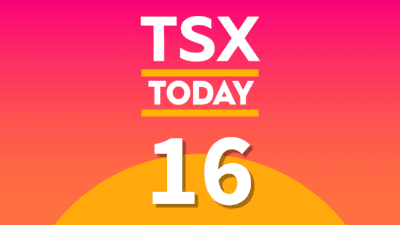Grocery stocks can be great places to invest if you think a recession will take a huge toll on the economy. Indeed, Canada may be steering straight into a recession. A lot of people have seen it coming from a mile away now. And even if it happens, I’m not so sure the stock market will overreact either way. Why? I think markets have already priced in a mild recession last year. Pending a black swan event, I’d not expect any sort of revisitation of last year’s market lows.
Though it’s always possible to have a sharp selloff, investors waiting around for one may be running the risk of staying on the sidelines for too long a duration. Inflation has come down quite a bit, but it’s still on the high side. And with that, the “risks” of being underinvested should be carefully considered by all investors.
Indeed, it sounds a tiny bit nerve-wracking to be a buyer of risk-on securities right here, even after last year’s plunge. The recession is likely still on the way. In any case, Loblaw (TSX:L) and Metro (TSX:MRU) seem like great ways to make money, regardless of what Canada’s economy decides to do over the next 18 months and beyond.
Both grocers have done reasonably well over the past five years, with L and MRU stocks returning 113% and 68%, respectively, over the past five years. Not a bad result considering the 2020 coronavirus recession and the 2022 wave of volatility.
Loblaw
Loblaw is an incredibly well-run grocery firm that exploded higher in 2021-22. Indeed, inflation and recession don’t seem like enough to drag Loblaw down. Even though momentum has slowed, I think the stock remains a reasonable value given the economic circumstances that could lie ahead. At 21.1 times trailing price to earnings (P/E), Loblaw is arguably one of the best all-weather stocks to stash at the core of your TFSA (Tax-Free Savings Account) if you’re at all concerned about what a Canadian recession may bring.
With a 1.5% dividend yield and a ridiculously low 0.09 beta (below one means less correlation to the market), Loblaw could make for a wonderful foundation should a volatility hailstorm hit.
Metro
Metro is another intriguing grocery play for investors seeking a slightly higher yield (1.63% at writing) at a slightly lower trailing P/E multiple. At 20.2 times trailing P/E, MRU isn’t exactly expensive for the calibre of business you’re getting. The company is likely to keep making smart investments to improve operational efficiencies.
Like Loblaw, Metro is a low-beta stock (0.05 at writing), meaning shares are less likely to follow in the footsteps of the TSX Index on any given day. With a new loyalty program and the ability to dodge and weave past lingering inflation pressures, shares of MRU stand out as a great option for investors seeking to do reasonably well over time.
Indeed, you won’t get rich with MRU stock, but it will help you obtain pretty decent results relative to risk over a long time horizon. In the face of a recession, Metro stock looks like a must-watch.
The better buy?
Both grocers have a decent risk/reward scenario right here, but if I had to choose one, it’d be Metro. Its loyalty program may draw in crowds, even as the recession weighs.
 Claim Membership Credit
Claim Membership Credit







